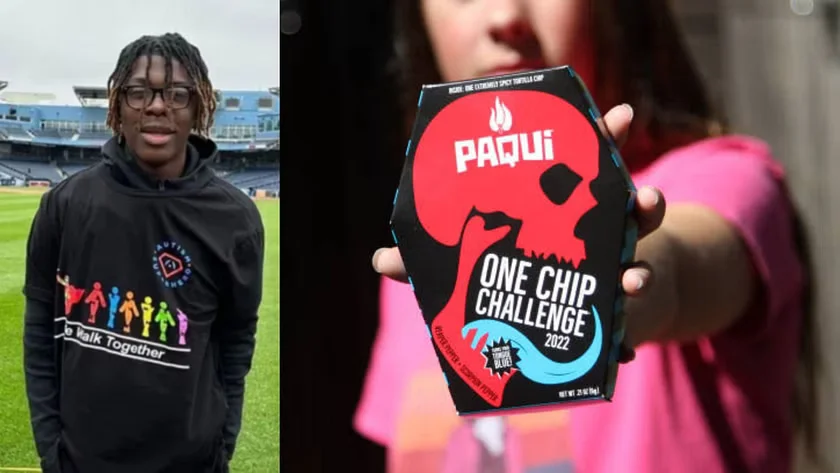A heartbreaking incident in Massachusetts has left a family devastated, as they suspect a connection between the tragic death of their young boy and the viral ‘One Chip Challenge.’
On a fateful Friday, 14-year-old Harris Wolobah lost his life, and the challenge, which involves consuming an exceptionally spicy Paqui chip and enduring its intense heat without relief, has gained notoriety on social media platforms.
According to Lois Wolobah, the mother of the deceased, her son fell ill after consuming the fiery chip at school. Although he initially appeared to recover when she picked him up, he later lost consciousness at home, just before basketball tryouts. Rushed to a local hospital, he was sadly pronounced dead.
While the exact cause of death remains unconfirmed, an autopsy is pending. In response to this tragic incident, Worcester Public Schools is offering emotional support to students and staff.
Worcester Schools Superintendent Rachel Monarrez extended her condolences, recognizing the loss of a “rising star” at Doherty Memorial High School.
Paqui, renowned for its spicy innovations, sponsors the ‘One Chip Challenge.’ This chip incorporates Carolina Reaper Pepper and Naga Viper Pepper, characterized as an “authentically intense encounter” on the company’s official website.
Paqui advises that only adults should attempt the challenge and cautions against it for those sensitive to spicy foods or individuals with allergies. The company also highlights potential medical effects and urges immediate medical attention if participants experience “difficulty breathing, fainting, or extended nausea.”
Furthermore, Paqui underscores the importance of thorough hand hygiene after handling the chip to prevent contact with sensitive areas, such as the eyes.
A spokesperson for Paqui emphasized their commitment to safety and transparent product labeling, ensuring that consumers fully comprehend the nature of the challenge before attempting it. This tragic incident serves as a poignant reminder of the potential risks associated with viral challenges and the importance of exercising caution.




